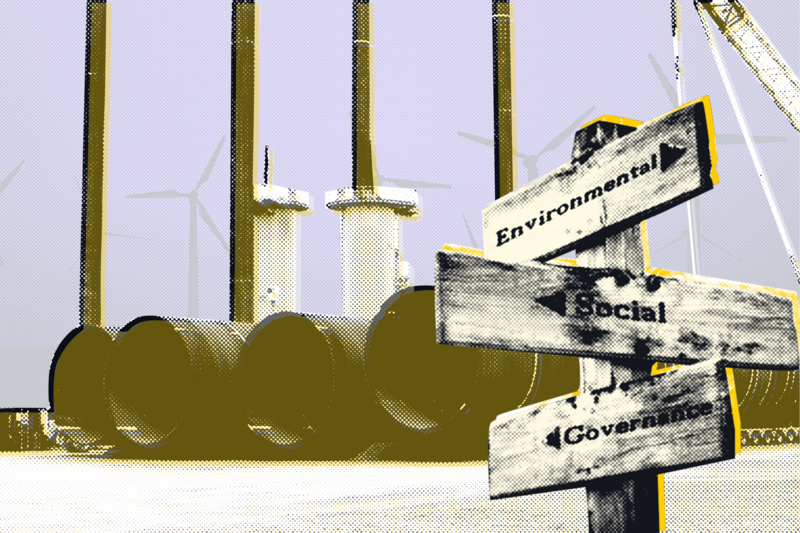In a nutshell:
- The Biden Administration issues a new rule requiring a 56% reduction in average fleetwide carbon emissions from new cars and light trucks by 2032.
- Texas pulls $8.5 billion from BlackRock over its ESG policies; one study shows the state’s anti-ESG laws have already cost Texas investors millions of dollars.
- Deutsche Bank ties bonuses for top execs to loan book decarbonizations goals.
- EU’s human rights and environmental due diligence law passes a major hurdle.
- A Dutch court finds KLM’s sustainability advertising misleading and unlawful.
Biden’s EPA acts on auto pollution
Making a significant climate-related policy move, the US Environmental Protection Agency announced new restrictions on emissions from gas cars. The new rule will require a 56% reduction in average fleetwide carbon emissions from new cars and light trucks by 2032. This is projected to dramatically increase electric vehicle sales from less than 8% today to being 35-56% of the market by that year.
The rule has been called a historic step for the US in tackling the climate crisis and reducing toxic air pollution and, as the announcement claims, a necessary one since transportation is the largest source of planet-warming emissions in the US. Passenger cars and trucks account for the majority of it.
The rules were weakened from initial proposals due to pressure from auto manufacturers and a legitimate threat of legal challenges before conservative courts.
Texas yanks $8.5 billion from BlackRock
The Texas State Board of Education announced the termination of an investment with BlackRock, pulling $8.5 billion in funds from the firm. Board Chairman Aaron Kinsey cited BlackRock’s “dominant and persistent leadership in the ESG movement” for the move.
The state has been active in terms of anti-ESG advocacy, but its actions could come at a cost to investors. An assessment by the Texas County & District Retirement System estimated that a proposed law prohibiting ESG investing in the state’s public retirement investment system could cost more than $6 billion over 10 years in lost returns. And it could prevent the system from working with top investment managers.
BlackRock responded to the announcement last Thursday in a letter to the Board’s chairman, and BlackRock CEO Larry Fink has previously highlighted the firm does not boycott the fossil fuel industry, noting that its clients have invested over $170 billion in US energy companies.
Deutsche to tie compensation to decarbonization results
Deutsche Bank announced an update to its Long-Term Incentive plan for its most senior executives in the company, with a portion of compensation for the group linked for the first time to the decarbonization of the bank’s corporate loan portfolio, beginning in 2024.
According to the bank’s most recent annual report, the ESG component now accounts for a third of the long-term award portion of the management board’s compensation. The Annual Report also highlights a new structure for the long-term component of the variable compensation for the bank’s top executives, under which financial and ESG targets will be more long-term and cover a period of three years (the prior method measured performance against the past year’s results) and be more ambitious in setting targets for key performance indicators.
Revised CSDDD gets the nod
The European Parliament’s Legal Affairs Committee announced it has approved the revised Corporate Sustainability Due Diligence Directive (CSDDD) in a 20-4 vote.
The decision clears a key hurdle towards the final passage of the new rules requiring companies to address their negative impacts on human rights and the environment across their business and supply chains. The latest version has been significantly scaled back by member states from a prior version that had already been agreed upon by the EU Parliament and Council.
One of the most significant changes in the revised CSDDD significantly scaled back the number of companies by raising the thresholds of those covered by the new legislation to 1,000 employees, up from 500, and to those with revenue greater than €450m, up from €150m.
Following the adoption by the committee, the new legislation will now advance for a full plenary vote in Parliament.
Dutch court cites KLM for greenwashing
A Dutch court ruled last week that KLM had misled customers with an advertising campaign aimed at improving the company’s environmental image, engaging in what has come to be known as “greenwashing”.
“A number of advertisements made by KLM in the past were misleading and therefore illegal,” the court said in a summary of the full decision, adding that some company claims about sustainability had been too vague.
In others, “KLM paints a too-rosy picture” about measures it is taking to reduce its emissions, such as using more biofuel or planting trees, it said.
KLM said it was satisfied with the decision, which gave it “clarity”, and noted the court did not impose any punishment. Environmental groups said it was a landmark decision because such claims are common across the aviation industry and the decision was being closely watched.













